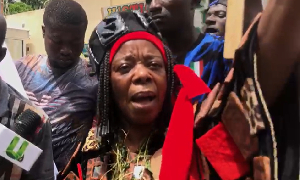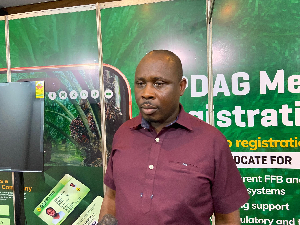Time for Resignations -Re: VRA at the verge of collapse; loses 3m daily
Electricity and pipe-borne water affects almost every aspect of modern day
living including communication, and health care delivery. It is not expected
that the people of Ghana can return to live in rural areas using candles,
firewood and fetch water from rivers; but that is what some are forced to do
in the city of Accra, contributing to further environmental pollution.
Electricity and water should therefore be priority number one!
It is quite unfortunate that Dr. Donkor has been part of the energy Ministry
or as Adviser for many years. In a report on Myjoyonline of May 29, 2013, he
seems to suddenly realize that Ghana was not producing enough energy or was
losing $3 million per day. In the 2004-2007 era Ghana was reported to be
rationing electricity due to a low water level at the dam, and the term
load-shedding was coined. In 2009 the water level was too much, leading to
an overflow causing flooding in some local villages. Electricity was still
being rationed. In fact the utility rate was adjusted higher at the time.
In the meant time the Transformer stations that were installed some 15 or 20
years ago are not upgraded whiles population in some parts of Accra have
grown three to four times during this time.
What the Ghanaian politician fails to realize is that you cannot fool all
the people all the time. Dr. Kwabena Donkor is not an Engineer but assuming
he learnt about energy on the job, what he forgets is that some of his
country men are equally educated and nobody has ever been asked to vote in
Ghana as to how much tariff or electricity rate to pay. It is therefore
absolute insult to the people of Ghana for the Member of Parliament to
suggest that when individual homes and businesses are losing an estimated $4
Billion per year in buying private Generators, fuel and appliance
replacement and lost businesses, they would prefer to do that or sleep in
darkness, be out of communication with the world, and suffer business
economic and personal losses than pay market rate or cost of production of
electricity.
The current President John Mahama was vice for three years and been
President for almost a year. Ghana is not producing but 60-75% of demand
electricity at best and Parliament has not approved budgets for upgrading
ECG transformers and equipment for decades. That is the truth! Ghana's
electricity delivery that is specified as 200 volts to 240 Volts have been
measured by independent study at sometimes below 200 Volts and at other
times more than 360 Volts, dangerous to appliances and capable of killing a
person. Our research shows that funds have not been approved by Parliament
to purchase basic components for step-down voltage transient equipment at
Transformer stations.
We believe that Dr. Donkor should resign his position, and so should the
Managing Directors of VRA and ECG, as well as Ghana Water Company. That will
be honorable. It appears they feel their positions allow them to look down
on and insult the people of Ghana who are suffering financial losses and
major inconvenience due to their false assumptions of what is good for the
people. This has been going on for at least nine years now as we remember.
When was the last time a survey was done and the people of say Abetifi,
Aburi, Accra, East Legon, Tamale or any part of Ghana voted to select what
rate of electricity or water they wanted to pay! Educated Ghanaians should
be careful about utterances that are deceptive, do not speak well and only
brings shame to our nation, especially where one expects better openness in
communication, integrity and managerial competence. We expect the President
to accept the resignations of these Managing Directors mentioned, whiles the
Chairman of the Parliamentary Select committee on energy can resign on his
own.
From: Dr. K. Danso,
(President, Ghana Leadership Union, Inc(NGO) and Moderator, GLU Forum.
Author: Leaderships Concepts and the Role of Goverment in Africa: The Case
of Ghana (2007))
Opinions of Friday, 31 May 2013
Columnist: Danso, Kwaku A.














